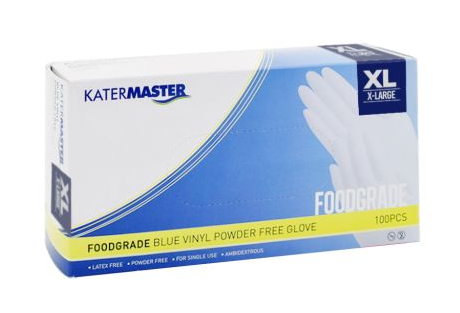Commercial kitchens are finely tuned operations, and that starts long before any meal hits the plate. With potentially thousands of meals to make each day, equipping busy kitchens with the essential tools is as important as sourcing quality ingredients or employing highly skilled chefs to ensure things run smoothly. Kitchen basics are the foundation of any smooth-running kitchen, ensuring health and safety regulations, and efficient workflow, and can also help organisations meet sustainability targets and worker preferences.
For those looking to ensure their kitchen operations are up to standards, there are no shortcuts, but there are a few basic components worth focusing on – gloves, cling wrap and foil.
GLOVES
Cleanliness is paramount in commercial kitchens – a fact that makes choosing the right disposable gloves even more important. A good pair of food-handling gloves is a simple way to protect both kitchen staff and those being served, creating a barrier that prevents the spread of germs and cross-contamination.
There’s no one-size-fits-all when it comes to choosing gloves for the commercial kitchen, though food handling styles should be sought in materials like vinyl and nitrile, both of which are designed to be comfortable, form-fitting, general-purpose gloves with low allergy. For more specialised kitchen tasks – such as fish scaling or kitchen cleaning – it can be worth looking at heavy-duty nitrile gloves, which are abrasion and chemical-resistant.
Also worth noting is the rating of gloves. For food handling, look for gloves with HACCP International Certification or ISO assurance to be sure of food safety and quality.
FOOD WRAP
When it comes to kitchen safety and food freshness, food wrap (or ‘cling wrap’) is a commercial kitchen all-rounder that’s impossible to do without. Food wrap creates a barrier to germs, preventing cross-contamination, while a tight seal prevents food from spoiling.
While household-style food wrap is fine domestically, the stakes are higher in commercial kitchens, putting the focus on the strength, durability, materiality and ease of use of commercial food wrap. Most commercial-grade food wrap is produced from non-toxic polyvinyl chloride (PVC) which is used for its strength, flexibility and durability. You’ll find a range of sizes but thickness is particularly-important for the rigours of commercial cookery. As always, ensure that any food wrap complies with the proper certifications, such as CAC HACCP VER:2003 or Australian Standard AS2070.
FOIL
Like food wrap, foil is vital for ensuring safe food storage, covering food to prevent germ transfer and keeping dishes fresh in storage. In a commercial kitchen, look for robust foil (‘heavy duty’ options are ideal for high-temperature baking and long-term storage) that complies with relevant standards, such as ISO, BRCGS or FDA.
Commercial foil comes in both rolls and individual sheets, and both have a role to play.
Sheets are pre-cut to size, which is convenient for lining trays and covering food in fast-paced kitchen environments. On the other hand, rolls can be cut to size, giving you more flexibility.
